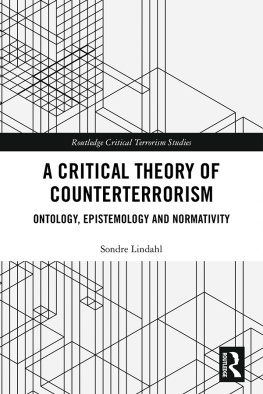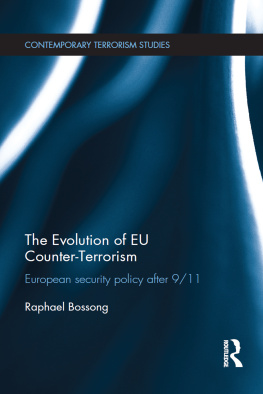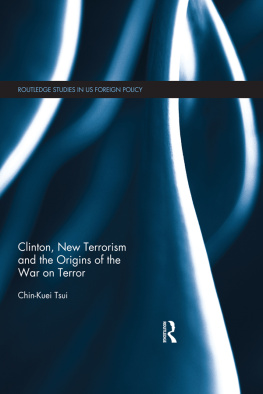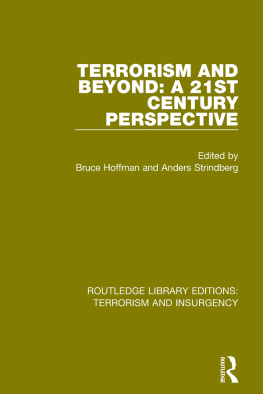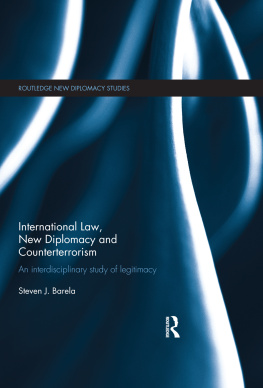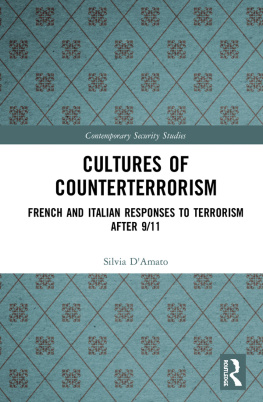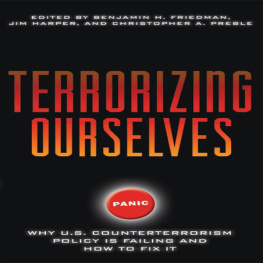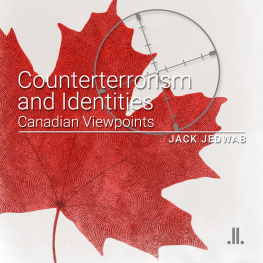A Critical Theory of Counterterrorism
This book offers a theory and model of counterterrorism based on emancipation and non-violence.
Critical Terrorism Studies (CTS) scholars have produced wide-ranging and rich critiques of terrorism-related research, as well as state counterterrorism policies and practices. This work aims to fill in a gap in the current literature by constructing an original and specifically CTS model of counterterrorism. The model outlines the basic assumptions, priorities, principles, strategies and tactics, measures and evaluation of counterterrorism. It challenges prevalent models of counterterrorism through a radical rethinking of the ontology, epistemology and the agenda of counterterrorism. The model aims to prevent future acts of terrorism by (1) reconceptualising how we study and understand terrorism, and; (2) suggesting that our efforts to counter and prevent terrorism must commensurate with the goals we want to achieve. Essentially, this involves a commitment to emancipation, and a rejection of violence as a tool. The second part of the book is a case study of Norwegian counterterrorism, which shows how the theory and model developed in the book can be used. This is the first substantial analysis of Norwegian counterterrorism in almost ten years, and produces encouraging findings that support the potential for non-violent solutions to terrorism.
This book will be of particular interest to students of terrorism and counterterrorism, Critical Security Studies and International Relations in general.
Sondre Lindahl holds a PhD in Peace and Conflict Studies from the National Centre for Peace and Conflict Studies, University of Otago, New Zealand.
Series: Routledge Critical Terrorism Studies
Series Editor: Richard Jackson
University of Otago, New Zealand
This book series will publish rigorous and innovative studies on all aspects of terrorism, counter-terrorism and state terror. It seeks to advance a new generation of thinking on traditional subjects and investigate topics frequently overlooked in orthodox accounts of terrorism. Books in this series will typically adopt approaches informed by critical-normative theory, post-positivist methodologies and non-Western perspectives, as well as rigorous and reflective orthodox terrorism studies.
Ending ETAs Armed Campaign
How and Why the Basque Armed Group Abandoned Violence
Imanol Murua
De-Radicalisationin the UK Prevent Strategy
Security, Identity, and Religion
M. S. Elshimi
Hamas, Jihad and Popular Legitimacy
Reinterpreting Resistance in Palestine
Tristan Dunning
Terrorism, Talking and Transformation
A Critical Approach
Harmonie Toros
Russias Securitization of Chechnya
How War Became Acceptable
Julie Wilhelmsen
A Critical Theory of Counterterrorism
Ontology, Epistemology and Normativity
Sondre Lindahl
For more information about this series, please visit: www.routledge.com/Routledge-Critical-Terrorism-Studies/book-series/RCTS
A Critical Theory of Counterterrorism
Ontology, Epistemology and Normativity
Sondre Lindahl
First published 2018
by Routledge
2 Park Square, Milton Park, Abingdon, Oxon OX14 4RN
and by Routledge
711 Third Avenue, New York, NY 10017
Routledge is an imprint of the Taylor & Francis Group, an informa business
2018 Sondre Lindahl
The right of Sondre Lindahl to be identified as author of this work has been asserted by him in accordance with sections 77 and 78 of the Copyright, Designs and Patents Act 1988.
All rights reserved. No part of this book may be reprinted or reproduced or utilised in any form or by any electronic, mechanical, or other means, now known or hereafter invented, including photocopying and recording, or in any information storage or retrieval system, without permission in writing from the publishers.
Trademark notice: Product or corporate names may be trademarks or registered trademarks, and are used only for identification and explanation without intent to infringe.
British Library Cataloguing-in-Publication Data
A catalogue record for this book is available from the British Library
Library of Congress Cataloging-in-Publication Data
Names: Lindahl, Sondre, author.
Title: A critical theory of counterterrorism : ontology, epistemology and normativity / Sondre Lindahl.
Description: Abingdon, Oxon ; New York, NY : Routledge, 2018. | Series: Routledge critical terrorism studies | Includes bibliographical references and index.
Identifiers: LCCN 2018009647| ISBN 9780815359234 (hardback : alk. paper) | ISBN 9781351121279 (e-book : alk. paper)
Subjects: LCSH: TerrorismPreventionPhilosophy. | TerrorismPhilosophy.
Classification: LCC HV6431 .L558 2018 | DDC 363.325/17dc23
LC record available at https://lccn.loc.gov/2018009647
ISBN: 978-0-8153-5923-4 (hbk)
ISBN: 978-1-351-12127-9 (ebk)
Typeset in Times New Roman
by Wearset Ltd, Boldon, Tyne and Wear
Contents
Illustrations
Boxes
Table
Figure
Preface
This book is a revised, updated, and if I may add, an improved edition of my doctoral thesis. There were several reasons why I wanted to do a PhD and write this book about terrorism and counterterrorism. As a scholar, I wanted to explore new and alternative ways to counter terrorism that could replace the brutal violence of the current counterterrorism paradigm. Observing the violence on display with the invasions of Afghanistan and Iraq, torture and abuse at Guantanamo Bay and Abu Ghraib, extra-judicial killings, massive state surveillance and the increase of terrorism and political violence, my impression has always been that this cannot be the best ways to counter and prevent terrorism. Not only do these actions and policies impose more violence on more people, but if the goal is to prevent future acts of terrorism, they are surely counter-productive. Thus, I was motivated to write this book to address the actions and policies that produce social injustice through a violent counterterrorism paradigm. Writing this book was therefore not purely an academic endeavour, but an attempt at producing knowledge that can influence and promote change.
Acknowledgements
We are as we are because we got that way.
This book, however, would never have been written if I had not signed up for Richard Jacksons last course on Critical Terrorism Studies at Aberystwyth University in 2011. It focused my scholarly attention on terrorism, and eventually led me to do a PhD at the National Centre for Peace and Conflict Studies, at the University of Otago, New Zealand, with Richard as supervisor. Needless to say, the long journey was worth it. Richard showed me what a real scholar should be meticulous, intellectually honest and politically responsible and I count myself incredibly privileged to have him as a mentor, colleague and friend. Not least, he is an inspiration to keep fighting social injustice.
None of this would have been possible, however, without the support of my family. Interest in politics was always encouraged, and political discussions were, and still are, daily occurrences. It is from them, and especially my mother, that I developed a passionate dislike for social injustice. So much so that it is the driving force in my academic work. My father and brother have an insatiable appetite for history, in particular political history, and I have benefited greatly from their discussions, knowledge and insight. Their unwavering support of my academic career means the world. So did my uncle, who passed away in the final months of my PhD. He is missed every day.

